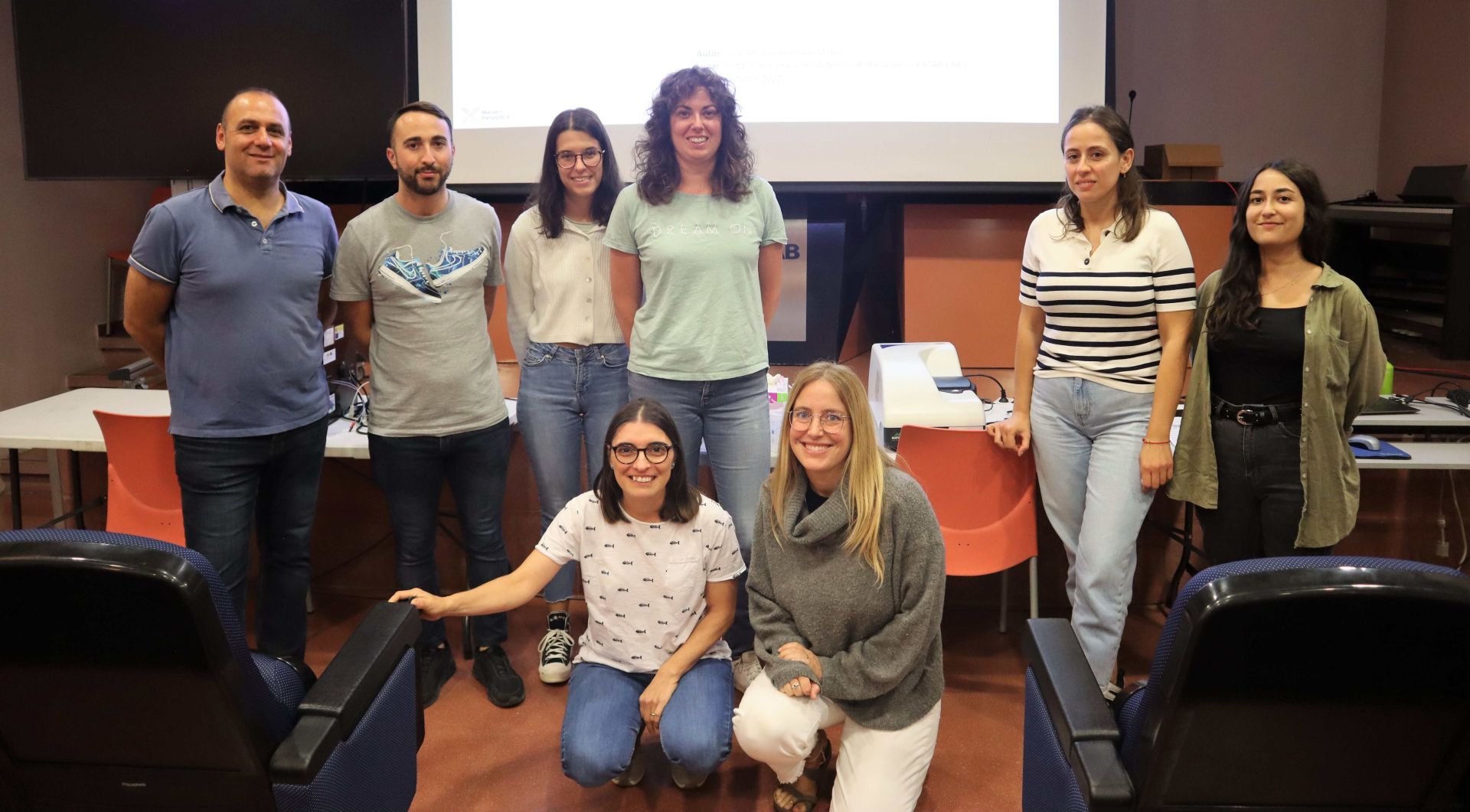
ICMAB-CSIC October 19th 2022
Amable Bernabé, from Nanbiosis U6 Biomaterial Processing and Nanostructuring Unit hosted from Monday, 3 October, to Wednesday, 5 October a course on “Characterization techniques for particulate materials”. The course counted with 10 participants from different CSIC centers.
The course was an introduction to different techniques to characterize nanoparticles and other particulate matter, including the basic fundamentals of these techniques, sample preparation, practical examples and results interpretation. It is the fifth edition of the course, which started in 2018. Amable Bernabé, technician from the Soft Materials Service, prepares and offers this course to all the CSIC community, so everyone who needs it can learn new methods to characterize nanoparticles, the theory behind the techniques, and how to manage the lab equipment devoted to these techniques. The course is offered every year through the CSIC training courses offered every year for all its staff. This year, the 10 participants were from CSIC centers of the Barcelona area: IMB-CNM, IDAEA, ICM and ICMAB, mainly.
Soft Materials Service – NANBIOSIS ICTS U6
The Soft Materials Service constitute the unit 6 of NANBIOSIS, the integrated infrastructure for the production and characterization of nanomaterials, biomaterials and systems in biomedicine, which has been recognized by Spanish Government as Unique Scientific-Technological Infrastructure (ICTS).
The Unit of NANBIOSIS provides equipment and technical assistance for the preparation and characterization of micro-and nanostructured soft molecular materials (molecular surfaces, micro- and nanoparticulate molecular materials, plastic films, dispersed systems, SAMs, etc..) with interest in different areas of application (biomedicine, electronics, energy storage and other chemical and material application areas).
The Soft Materials Service, with Amable Bernabé and David Piña as technicians, participate in many European projects and give service to the whole ICMAB community, apart from the Nanomol Research Unit, and also to other CSIC centers and research institutions and companies. In 2021, for example, 30 % of the users were external. Of these users, 14.3 % were from private companies, 58.9 % came from other research centers or universities, and 26.8 % from other ICMAB research units.
This last April 2022, the Service Materials Service, which is part of Unit6 of the ICTS Nanbiosis and CIBER-BBN, obtained the ISO 9001:2015 Quality Certification, which ensures the quality of the service provided and helps to continue with its improvement and extension to future services.
Contents of the course
Theory:
- Dynamic Light Scattering (DLS) with Zetasizer Nano ZS (Malvern Instruments)
- Size distribution
- Z Potential
- Nanoparticle Tracking Analysis (NTA) with Nanosight NS300 (Malvern Instruments)
- Size distribution
- Particle concentration
- Fluorescence
- Light Scattering (LS) with Mastersizer 2000 (Malvern Instruments)
- Size distribution
Practice:
- Sample analysis and practical cases of Dynamic Light Scattering with the Zetasizer Nano ZS (Malvern Instruments) equipment.
- Samples analysis and practical cases of the Nanoparticle Tracking Analysis (NTA) technique with the Nanosight NS300 (Malvern Instruments) equipment.
- Sample analysis and practical cases of the Light Scattering (LS) technique with the Mastersizer 2000 (Malvern Instruments) instrument.








